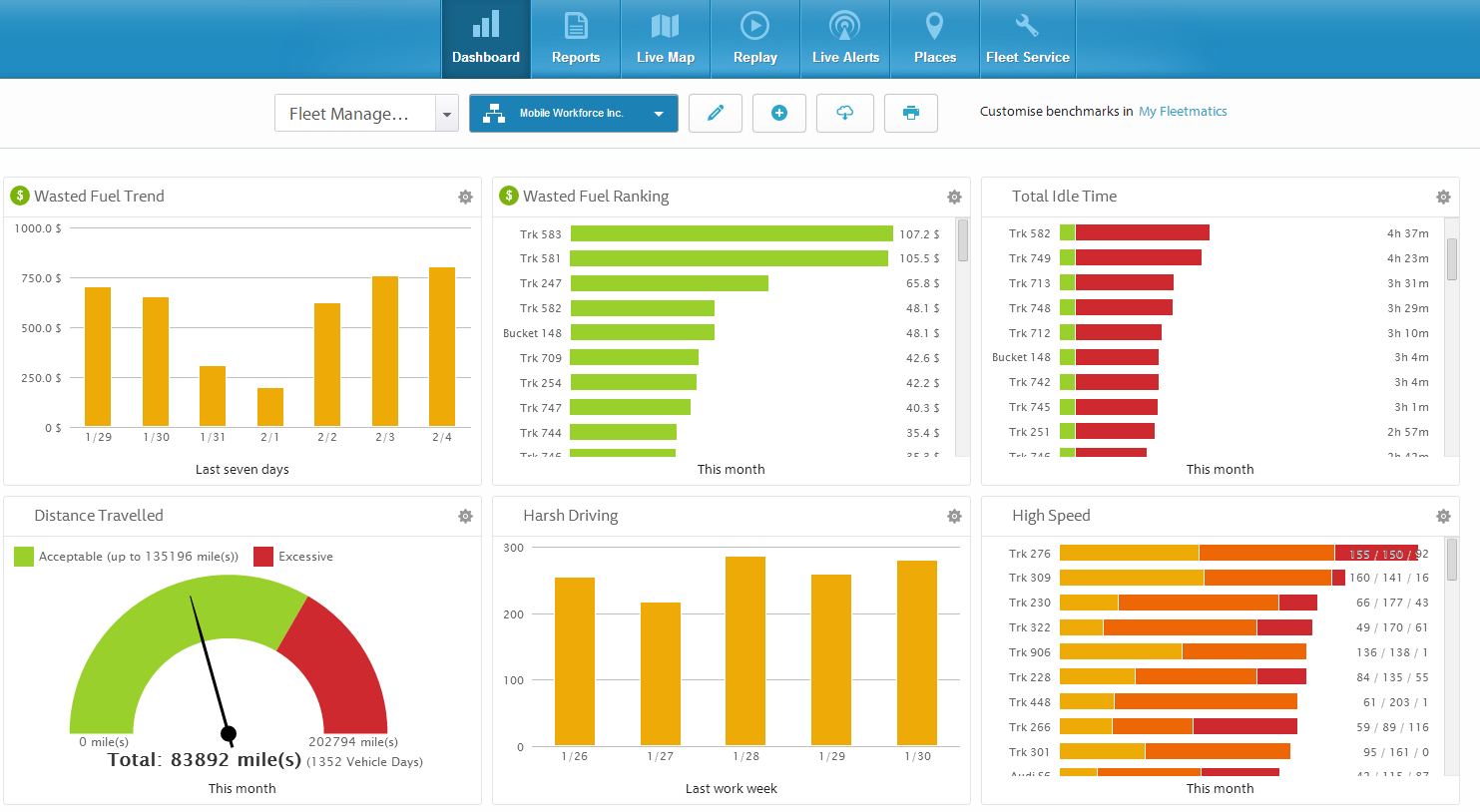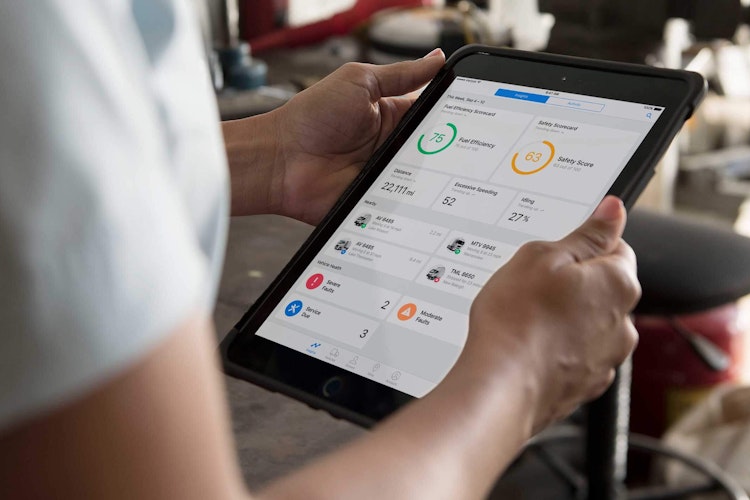
During the novel coronavirus pandemic lockdown, it seems like even more vehicle fleets are driving everywhere—from package delivery services to grocery store suppliers to essential infrastructure services like construction. These fleets are facing more work than ever, and need to remain as efficient as possible in order to keep up with demand. That’s why wireless capabilities are so important for fleet operators.
envuetelematics
Wireless fleet management is by far the best system a fleet can use to operate, compared to limited tracking systems that simply record data for later downloads, or even just using pen and paper for record-keeping purposes. Wirelessly transmitting data allows managers to collect information about the fleet in real-time, boosting efficiency in a variety of ways.
Here’s a quick look at the top benefits of using wireless capabilities with fleet management software.
Increased visibility
The main goal of a fleet management system, or FMS, is to help the fleet’s manager keep track of all their vehicles’ daily movements. All major wireless systems will include a real-time map of every vehicle’s GPS location at any given time. Managers can make it their homepage, ensuring that a bird’s-eye view of their entire operation is only a click away.

keeptruckin
The data isn’t just GPS; Most FMS’ will also include a profile with each vehicle, letting managers quickly see which driver is using which vehicle, how many hours they have left to work, and which destinations are next on their docket.
With this feature, fleet managers will be able to spot when a driver is off-track, when a vehicle has stopped without first reaching its destination, and which off-duty truck is the best fit for the next assignment. Without it, managers are flying blind.
More driver safety
Most FMS’ will collect data on driving habits, registering every time a vehicle corners too roughly, brakes too harshly, or leaves a speed limit in the dust. Using this data, managers can identify and address problem areas.
And, since the FMS sends data in real-time, a manager can learn about a collision with an automated alert just seconds after it happens, and can dispatch an ambulance immediately if needed.
peerbits
It’s worth noting that no one enjoys being micromanaged, and truckers in particular tend to value their privacy. A wise fleet manager won’t use this FMS data to correct every single mistake, but will instead step in only when truly needed. That said, there’s no harm in having the information on hand for those moments when action is necessary, and may even make up the difference between life and death.
Happier customers
Delivery trucks and fleets that make at-home visits for services like lawn care or plumbing may need to contact customers. Without a fleet management system, drivers are forced to rely on personal phones. It’s easy to wind up with a customer who feels like they can’t get through, or who’s annoyed at calling multiple times.
Pick an FMS with the right mobile app, and drivers will be able to quickly send messages through their app directly to a customer, and vice versa. Customers will feel as though they have a simple line of communication, and stay happier as a result.

Fleet Street Communications
Granted, you’ll need to check the top-rated vehicle tracking suppliers in order to ensure they offer this feature, along with all the others you’ll need: They will all have wireless capability baked into their systems, but some may not include the capability to contact customers directly through each drivers’ mobile app.
Happier drivers
With an FMS, drivers’ hours of service can be logged automatically, with drivers simply hitting a single button in order to clock in and clock out. The software itself tracks the data, generating an accurate HOS report at the touch of a button in order to help drivers quickly pass a surprise roadside inspection.
Streamlining touches like this mean that each driver will spend less time on busy work, and you’ll see more overall job satisfaction as a result.
Trusted reporting

hardworkingtrucks
Reports are also sent straight to managers — and, once again, it’s all sent in real-time. This saves time by making everything easily accessible rather than just reams of paper in filing cabinets.
Since the data is sent wirelessly, drivers won’t have any time to misremember their exact hours, either due to faulty memories or because they’re intentionally fudging the numbers. As a result, managers will know their data is trustworthy, and will know they can make informed decisions.
Safer maintenance and longer vehicle lifespans
If you’ve ever waited until the last minute to start a homework assignment, you know how tough it is to keep vehicles maintained and serviced. The trick is to take precautionary measures: Rotate the tires or change the oil before the vehicle gives any indication that it needs it, and you’ll keep your truck shipshape. Wait too long, and you’ll give yourself a much larger problem in the end.

Verizon Connect
The most practical way to ensure that no scheduled maintenance sneaks up on you? Notifications and alerts. This is where a wireless fleet management system comes in, as these services can be set to trigger an alert once a vehicle rolls past a set number of miles, or after a set number of months has passed. The alerts will arrive directly on the manager’s phone or desktop, ensuring they can service the vehicle on time, every time.
In the end, a wireless FMS helps you now, not later
A tracking system can collect data, and the manager will receive it eventually, allowing them to make more informed decisions about how to assign jobs or manage drivers, vehicles, and fuel in the future.
But the benefits of wirelessly transmitted data aren’t about the future: They help managers stay in the loop when an important event occurs — whether it’s a new job that needs assigning or even a highway collision. Get the best wireless FMS, and your fleet will save time and money in a dozen tiny ways every day, easily making back the cost of the FMS and more.
Author Bio:
Julia is the Content Manager at Expert Market, a leading b2b publication that empowers businesses to grow and succeed. Having spent years immersed in the world of startup entrepreneurship, she now specialises in business energy, vehicle tracking, and fuel cards, helping businesses to optimise their operations.